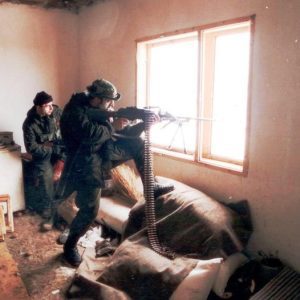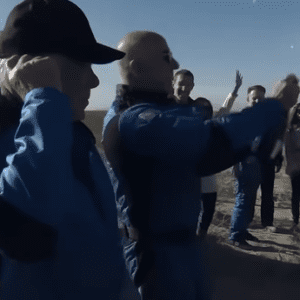I live in the rural South.
- Gas is cheaper here than the suburbs or cities.
- Taxes are much lower here than they are in the suburbs or cities.
- Land is incredibly, embarrassingly cheap. I live on 60 rolling acres of mixed woodland and fields with ponds on a river. I have two separate herds of deer, wild fish in my ponds and creeks, wild turkey, woodpeckers and all kinds of birds, and the occasional otter and passing bear. For what I pay I couldn’t even get a studio apartment in New York City or San Francisco.
- I take daily walks in the woods with my dogs – all rescues found locally. One time we startled a turkey and it almost took my head off as it flew above me. I felt the tremendous air of its wings. A truly glorious animal.
- Thanks to the Rural Fiber Initiative, I have fiber to my house. I can stream several 4K movies or TV shows at the same time without hiccup. My ping is 1ms with 515 mbps down and 52 mpbs up.
- The nearest grocery store stocks everything I need. It’s 10 minutes away. A further 15 minutes there’s a Walmart. Add another 15 minutes and there’s all the amenities of suburbia including Costco and Starbucks.
- The wife and I lay in zero g chairs and watch the heavens at night. On a bad night we’ll see a handful of satellites and space junk. On a good night we’ll see meteor showers, satellites, and the Milky Way so bright it deserves its name.
You ask how people can afford to live here. I ask how people cannot afford to live here.

Crossing a Creek After a Recent Rain (source: author)
12/10/2020 Update: Thank you for the interesting comments. There seems to be a lot of interest in rural life. As a “city boy” myself, I never imagined living where I live now. Now I can’t imagine living anywhere else.
Some tips:
- There are rural areas all over the country, not just the south. I have visited fascinating areas in rural Pennsylvania, New York, Maine and Massachusetts. I have also visited rural areas in California, and have friends that live in rural Colorado. Before moving here I also considered rural New Mexico. Land is cheap in these places due to depopulation, but land is difficult to value. Just because it’s cheap doesn’t mean it’s worthless. Conversely, just because it’s expensive doesn’t mean it’s valuable.
- If COVID-19 has taught us anything, it’s that we are no longer chained to where our jobs are. Many people can now live wherever they want. You need to think beyond the stereotypes. There is a very strong bias against rural living in the mass media: You need to see it and judge it for yourself.
- It’s not for everyone. If you are young and single, forget it. There are few opportunities for socializing. The schools aren’t that great, so if you have young kids, be prepared to take an active role in your kid’s education.

I don’t consider myself VERY isolated, but I’m 2.5 miles up a winding dirt road on the side of a mountain in Vermont. My neighbor is about 200 yards away.
I moved up here in 2013 and got a job at a nearby school district. My commute was about 35 minutes. Due to the district f’ing around with the budget, I chose to move on. In 2015 I took a job at a place that did remote Windows server monitoring and backups. Again, it was about a 35 minute drive. The irony of this job was that, despite the work being remote from our office, we weren’t allowed to work from home. It would have been just as easy, but the owners frowned upon it. I was headhunted out of that job and now I work for a government contractor based out of Virgina. I have an office, but after lockdown, we were told to work from home.
I built a desk, grabbed a couple of monitors and took an office chair from work. I’ve been teleworking for 11 months and I’ve been saving a TON on gas and those overpriced lunches I’d get near the office.
I also negotiated a GREAT raise for myself before lockdown occurred. It went through at the height of the pandemic. Talk about survivor’s guilt!!
Now I’m doing really well. Getting paid more while saving money. I have 5 acres of land next to a state forest, so I can even go for a walk and not see anyone.
I lucked out in many ways. I work in IT. My last job in NYC was as a teacher and IT support guy in a private school. That allowed my career to become more “portable”. This enabled me to move to Vermont. Prior to that, I made twice as much money working in broadcast, so I sacrificed a lot of money for a year just to get some academic experience on my resume so I could work anywhere.
I never thought I’d be working for a government contractor in Virginia while living in Vermont. There are lots of folks out there who have similar circumstances.
It’s hard to get more isolated than the Alaskan Native Villages.

Barrow, Alaska.
How isolated is it?
It’s above the Arctic circle.

The people here afford to live there because there are jobs there.
These jobs support the oil drilling done on the north slope, things like busing the workers too and from the airport to the sites. Even then they supplement it with revenues paid for via rents and fees for drilling on their land. In addition, natives are typically shareholders for the corporations who do support jobs directly for the oil companies (I’m pretty sure it’s just Conaco-Philips now).
Contrary to pretty much everywhere else in the U.S., live up that far north is not cheap. It’s very hard to get even basic necessities like food, which is why they supplement their diets with traditional Alaskan Native foods like muktuk.
Which also go by blubber nuggets.

i hear they are chewy.






